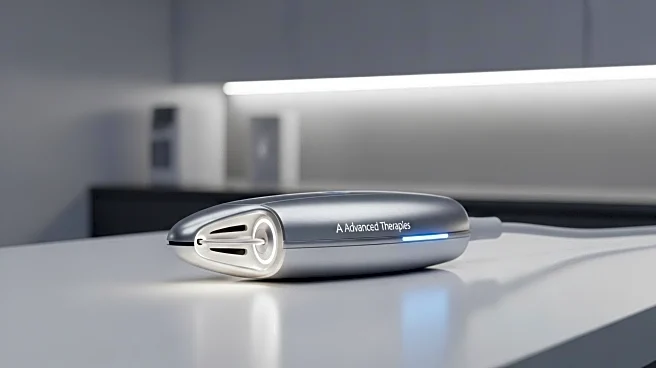What's Happening?
Jiangsu Hengrui Medicine is expanding its focus into the atopic dermatitis (AD) market with advanced drug candidates like HRS-5041 and KT-621. HRS-5041, initially developed for prostate cancer, is now being explored for its potential in modulating immune pathways in AD. KT-621, developed in collaboration with Kymera Therapeutics, employs PROTAC technology to degrade STAT6, a key factor in AD inflammation. These therapies aim to offer reduced toxicity and enhanced efficacy compared to traditional treatments, positioning Hengrui as a leader in innovative dermatological solutions.
Why It's Important?
The expansion into atopic dermatitis represents a strategic move for Jiangsu Hengrui Medicine, tapping into a high-growth market projected to expand significantly over the next decade. By focusing on low-toxicity mechanisms, Hengrui addresses the demand for safer treatments, potentially improving patient outcomes and reducing healthcare costs. The company's innovative approach, leveraging PROTAC technology, aligns with industry trends towards targeting previously 'undruggable' proteins, offering a competitive edge in the crowded AD therapeutic space.
What's Next?
Hengrui's success in the AD market will depend on the clinical outcomes of its Phase II trials for HRS-5041 and Phase I trials for KT-621. Positive results could redefine treatment standards for AD, enhancing Hengrui's market position. The company must navigate regulatory challenges and demonstrate the efficacy and safety of its repurposed therapies to achieve commercial success. Stakeholders will closely monitor these developments, which could influence investment and strategic partnerships in the biopharmaceutical industry.









